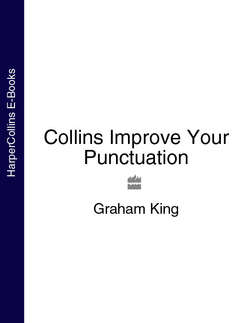Читать книгу Collins Improve Your Punctuation - Graham King - Страница 15
Too, many, commas …
ОглавлениеThe over-use of commas still survives in sentences wrought by writers, possibly Librans, who can’t make their minds up. Their sentences tend to be hedged with ifs, buts, maybes and pontifications:
It is, curiously, surprising when, say, you hear your name announced in a foreign language, or even in a foreign accent.
Here’s another example, from The Times a few years ago:
It is, however, already plain enough that, unless, indeed, some great catastrophe should upset all their calculations …
It’s grammatical, but a real pain to the reader. In most cases such sentences can be written with half the number of commas or less. Here’s an over-spiced sentence which can be rewritten without any commas at all:
He had not, previously, met the plaintiff, except when, in 1984, he had, unexpectedly, found himself in Paris.
Those are bad cases of what the Fowler brothers, in The King’s English, called ‘spot plague’ and fortunately, perhaps through the influence of newspaper brevity and the crispness of much modern fiction, they’re a dying breed. But the injection of the single comma into a perfectly good sentence, simply because a writer feels it is lonely without one, is a growth industry:
• The trophy presented to the winner, was the one donated by the village butcher.
• The gang left him, bleeding by the roadside.
• You can never foretell, what the weather will be like.
Before we get too glib about unnecessary commas, here’s a well-comma’d, heavily parenthesised sentence written by a craftsman, detective story writer Julian Symons. In this case you will find it rather difficult to remove any of the commas without causing confusion or disturbing the flow:
Waugh had already perfected his technique in writing dialogue, by which fragmented, interjectory, often apparently irrelevant, but, in fact, casually meaningful conversations carry along much of the plot, avoiding the need for description.
